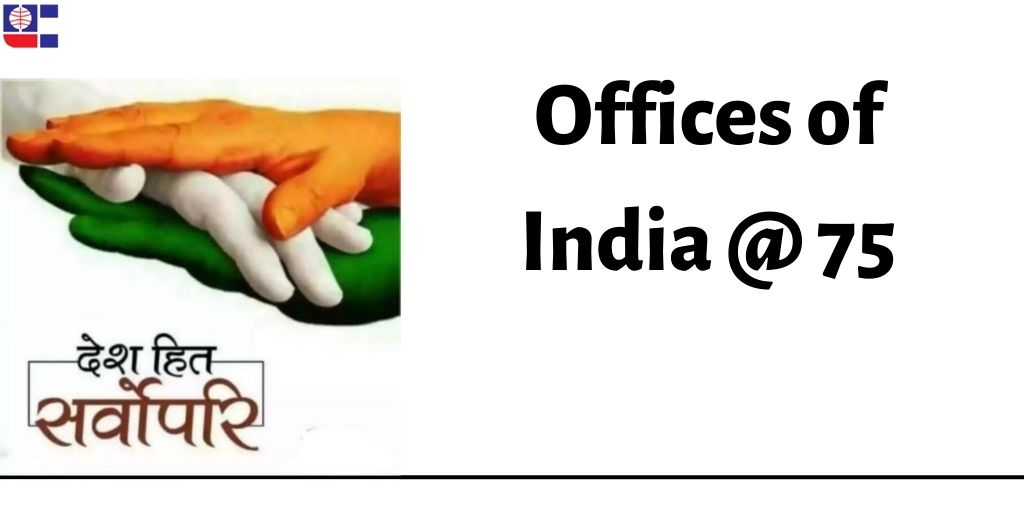
The Indian Independence Day is right around the corner. It is the Amrit Mahotsav this time- we are celebrating 75 years of independence! As we look back, we realise that after all these years of churning, the Amrit seems to have finally come out as we get the sense of an ever-evolving sense of a nation and self.
Multiple themes have been declared this time around by the government- Ideas @ 75, which aims to bring into focus key concepts and ideas that have formed the core mosaic for us and will continue to guide us even twenty-five years from now. Achievements @ 75 aims to bring into focus our legacy, efforts and contributions. Actions @ 75 emphasises the actions being taken to put policies into implementation. Resolves @ 75 reminds us about our individual and collective resolves that will help us further our commitment to better our motherland.
Despite the 75 years mark, there are still times when we glorify western ideas of the office life, often disregarding our own merits and unique perspectives. In the light of the spirit of pride and emancipation of mental shackles, let us have a look at some of the ideas, achievements, actions and resolves within the Indian office as we step into the Amrit Mahotsav.
Ideas @ 75:
India has always been a blend of tradition and modernity. And it is about time we think of this idea as a source of pride. A little anecdote from an old magazine comes to mind: imagine a boardroom with quiet murmurs and occasional spatter of words that one can hear at a workplace. It’s a pleasantly lit room. Suddenly one hears the sound of ‘payals’ or anklets. Does it feel like an interruption?
It certainly isn’t. It is a well-accepted normalcy in our country, and it is thanks to our understanding that tradition and modernity aren’t necessarily mutually exclusive.
This blend suggests something more. Where there are international struggles of sexism against women at workplace, where women feel like they are in a ‘masculine’ work environment, the normalcy of the twinkling anklets is more than just a pleasant sound- it encapsulates a pleasant idea of a workplace that has space for the ‘feminine.’
The rakhis on the hand, the leftover decorations for Christmas and Diwali on some of the office walls too are signs of blend of tradition and modernity.
The Indian way has always been about following the traditions, celebrating the festivals in harmony with the daily life, rather than seeing festivals and traditions as respites from the drudgery. Let us think of this idea that harmonises tradition and modernity with a sense of pride. There is no need to hide the celebratory spirit, nor any need to hide the diversity that stems from various points of view.
Achievements @ 75:
Many companies in western countries are trying hard to achieve ‘diversity’ within. Special Diversity and Inclusion officers are being appointed to ensure there is a diversity of voices and the cultural minorities do not have to face challenges because of their background. It is no less than an achievement for India that the diversity within our population has long been recognised and it is almost always taken for granted. And that it is reflected in our offices. Whether it is the diversity within age, education, language, cultural and religious background, the Indian way of interaction has always accepted diversity in others. It is so obvious and natural to us that most of us don’t even think of it as an achievement.
To think that such a diversity exists, where accents and dialects change every few kilometres, where regional and cultural influences on dressing styles are seen within the same city, and to still find everyone united- it is no mean feat. The famed unity in diversity of our country can be seen in our well-functioning offices, with staff members from multiple background.
Actions and Resolves @ 75:
As we acknowledge our unique harmony of tradition and modernity, our inherent diversity, we also need to acknowledge the existing problems. As we mentioned in one of our recently posted articles, the state of mental and physical well-being of employees in India needs serious consideration. We also need to see if we are giving a level-playing field to everyone, or if we are favouring our ‘contacts’, a.k.a, we need to ensure merit, and not nepotism is the guiding force for our choices. Dignity of labour, leave policies, overwork and burnout, instances of sexism etc are some universal issues to be solved. These issues need our action and resolve to ensure our future generations of employees and employers do not end up inheriting our problems. This is where we need to use our hindsight to improve our foresight. This is where we need to think beyond our own individual selves, keeping the present and future collective in mind. Miraculously, when we keep the collective benefit of the nation, the ‘desh hit’ above everything, ‘sarvopari’, the benefits will seep into our individual lives as well.
This Independence Day, let us look back and take pride in how far we have come. Let us take pride in our achievements, the gifts of our culture that translated into our offices. Let us acknowledge and resolve to take actions against that which needs to be improved, because by no means, the churning of the Amrit should stop.
Team UHR wishes everyone a very Happy Independence Day!

